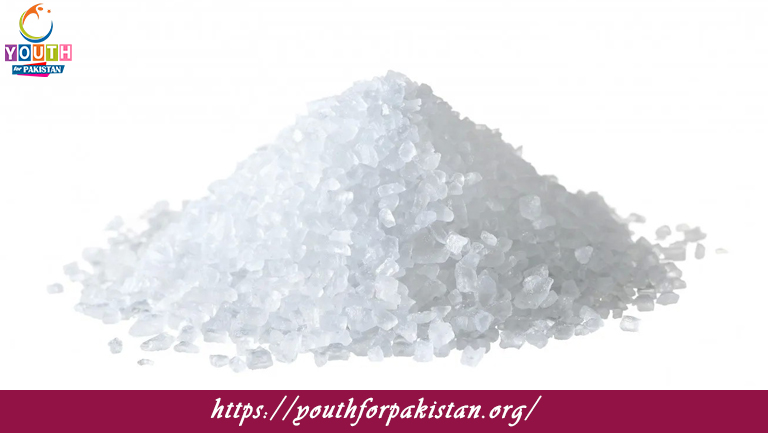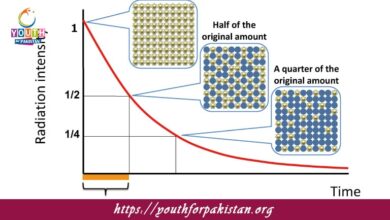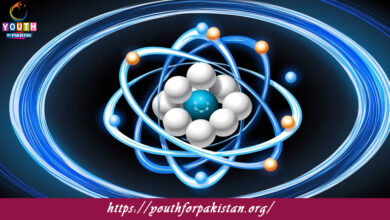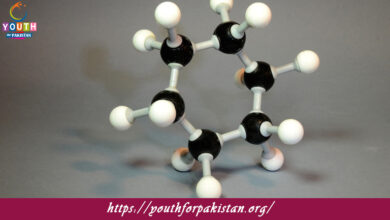Ionic Solids MDCAT MCQs with Answers

Welcome to the Ionic Solids MDCAT MCQs with Answers. In this post, we have shared Ionic Solids Multiple Choice Questions and Answers for PMC MDCAT 2024. Each question in MDCAT Chemistry offers a chance to enhance your knowledge regarding Ionic Solids MCQs in this MDCAT Online Test.
Ionic solids are characterized by:
a) Metallic bonding
b) Covalent bonding
c) Ionic bonding
d) Van der Waals forces
In an ionic solid, ions are held together by:
a) Covalent bonds
b) Metallic bonds
c) Ionic bonds
d) Hydrogen bonds
Which of the following is a property of ionic solids?
a) High melting points
b) High electrical conductivity in the solid state
c) Malleability
d) Low solubility in water
Ionic solids generally:
a) Have high boiling points
b) Are brittle
c) Are flexible
d) Conduct electricity in solid form
In which state are ionic solids usually conductive?
a) Solid
b) Liquid
c) Gas
d) Solution
Which of the following is an example of an ionic solid?
a) Sodium chloride (NaCl)
b) Diamond
c) Graphite
d) Sulfur dioxide (SO₂)
The high melting point of ionic solids is due to:
a) Weak ionic bonds
b) Strong covalent bonds
c) Strong ionic bonds
d) Metallic bonding
Which of the following properties is least characteristic of ionic solids?
a) High melting point
b) High electrical conductivity in liquid form
c) Malleability
d) Solubility in water
Ionic solids are generally:
a) Poor conductors of heat
b) Good conductors of heat
c) Malleable and ductile
d) Amorphous
The solubility of ionic solids in water is primarily due to:
a) Ionic bonds
b) Hydrogen bonding
c) Dipole-dipole interactions
d) Ion-dipole interactions
The lattice energy of an ionic solid depends on:
a) The size of the ions and the charge on the ions
b) The type of covalent bonds present
c) The metal content in the solid
d) The presence of hydrogen bonds
Which of the following pairs of ions would form a compound with the highest lattice energy?
a) Na⁺ and Cl⁻
b) Mg²⁺ and O²⁻
c) K⁺ and I⁻
d) Li⁺ and F⁻
Ionic solids tend to be:
a) Poor conductors of electricity in molten state
b) Good conductors of electricity in molten state
c) Poor conductors of electricity in aqueous solution
d) Malleable and ductile
The brittleness of ionic solids is due to:
a) Strong ionic bonds
b) Weak covalent bonds
c) The ability of ions to move freely
d) The alignment of ions in the lattice structure
Which of the following properties is typical of ionic solids?
a) Low density
b) High melting point
c) High thermal and electrical conductivity
d) Ductility
The high solubility of ionic solids in water is due to:
a) Ionic bonds being strong
b) Water’s high dielectric constant
c) Strong covalent bonds in water
d) High volatility of ionic solids
Which type of ionic solid would have a higher melting point?
a) A compound with small, highly charged ions
b) A compound with large, low-charged ions
c) A compound with ionic bonds only
d) A compound with a high number of covalent bonds
Which of the following is a common property of ionic solids?
a) They are typically soft and flexible
b) They have high melting and boiling points
c) They have low solubility in water
d) They are good conductors in the solid state
In ionic solids, the ions are arranged in a:
a) Random fashion
b) Face-centered cubic lattice
c) Body-centered cubic lattice
d) Regular, repeating pattern
Ionic solids are usually:
a) Malleable and ductile
b) Brittle and easily shattered
c) Good conductors of electricity in solid form
d) Soft and flexible
Which of the following ionic solids would have the highest lattice energy?
a) NaCl
b) MgO
c) KBr
d) LiF
Ionic solids are typically formed between:
a) Two nonmetals
b) Two metals
c) A metal and a nonmetal
d) Two metalloids
The ability of ionic solids to conduct electricity in aqueous solutions is due to:
a) The movement of ions
b) The mobility of electrons
c) The lattice energy
d) The ionic bonds
Which ionic compound is least soluble in water?
a) Sodium chloride (NaCl)
b) Calcium carbonate (CaCO₃)
c) Potassium nitrate (KNO₃)
d) Lithium fluoride (LiF)
The hardness of ionic solids is primarily due to:
a) Strong covalent bonds
b) Strong ionic bonds
c) Weak van der Waals forces
d) High volatility
The structure of ionic solids typically forms a:
a) Network solid
b) Molecular lattice
c) Crystal lattice
d) Metallic lattice
Ionic solids are not generally:
a) Conductive in molten state
b) Soluble in water
c) Brittle and hard
d) Conductive in solid state
The lattice energy of an ionic solid is a measure of:
a) The stability of the ions in the lattice
b) The solubility of the ionic solid
c) The melting point of the ionic solid
d) The flexibility of the lattice structure
Which of the following is NOT an ionic solid?
a) NaCl
b) MgO
c) SiO₂
d) KBr
The solubility of an ionic solid in water increases with:
a) Higher lattice energy
b) Larger ion sizes
c) Higher ion charges
d) Lower dielectric constant of water
The brittle nature of ionic solids results from:
a) The inability of ions to move within the lattice
b) The strong electrostatic forces between ions
c) The presence of weak covalent bonds
d) The mobility of electrons in the lattice
In the solid state, ionic compounds:
a) Have high thermal conductivity
b) Are generally brittle
c) Have high electrical conductivity
d) Are ductile and malleable
Ionic compounds generally have:
a) High melting and boiling points
b) Low melting and boiling points
c) High volatility
d) Low density
Which property is associated with ionic compounds in aqueous solutions?
a) High solubility
b) High volatility
c) Low conductivity
d) Malleability
The lattice energy of an ionic solid is:
a) Directly proportional to the distance between ions
b) Inversely proportional to the distance between ions
c) Not affected by ion size or charge
d) Determined by covalent bonding
Which of the following ionic solids would be expected to have the lowest melting point?
a) NaCl
b) MgO
c) LiF
d) KBr
The brittleness of ionic solids is most closely related to:
a) The mobility of ions
b) The strong ionic bonds and lattice structure
c) The presence of covalent bonds
d) The high density of the solid
Ionic solids are most likely to:
a) Conduct electricity when solid
b) Be malleable and ductile
c) Be soluble in nonpolar solvents
d) Have a regular and repeating lattice structure
Which factor does NOT affect the lattice energy of ionic solids?
a) The charge of the ions
b) The size of the ions
c) The color of the ionic solid
d) The distance between the ions
Which of the following ionic solids would have the strongest lattice energy?
a) NaF
b) LiBr
c) MgCl₂
d) KCl
If you are interested to enhance your knowledge regarding Physics, Chemistry, Computer, and Biology please click on the link of each category, you will be redirected to dedicated website for each category.





